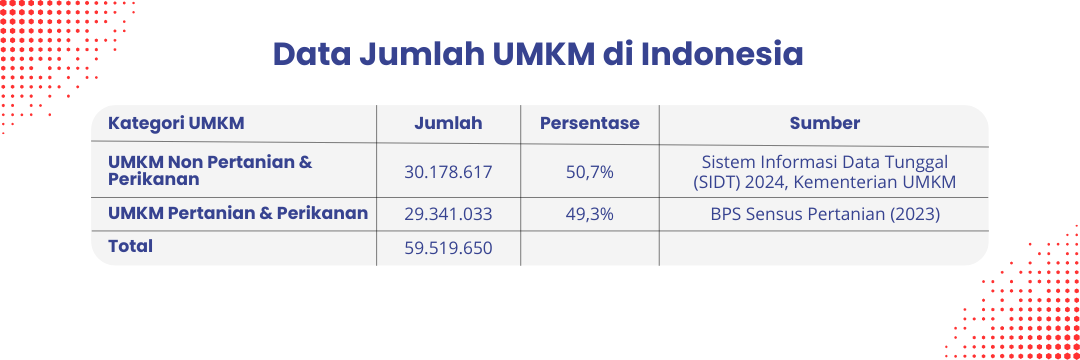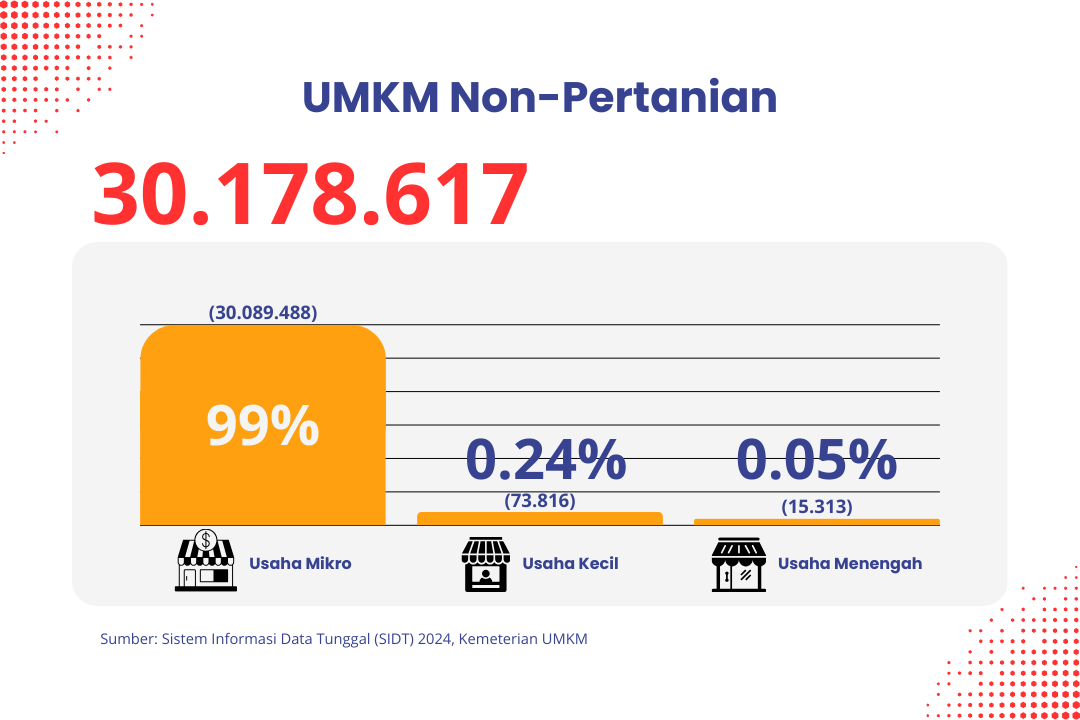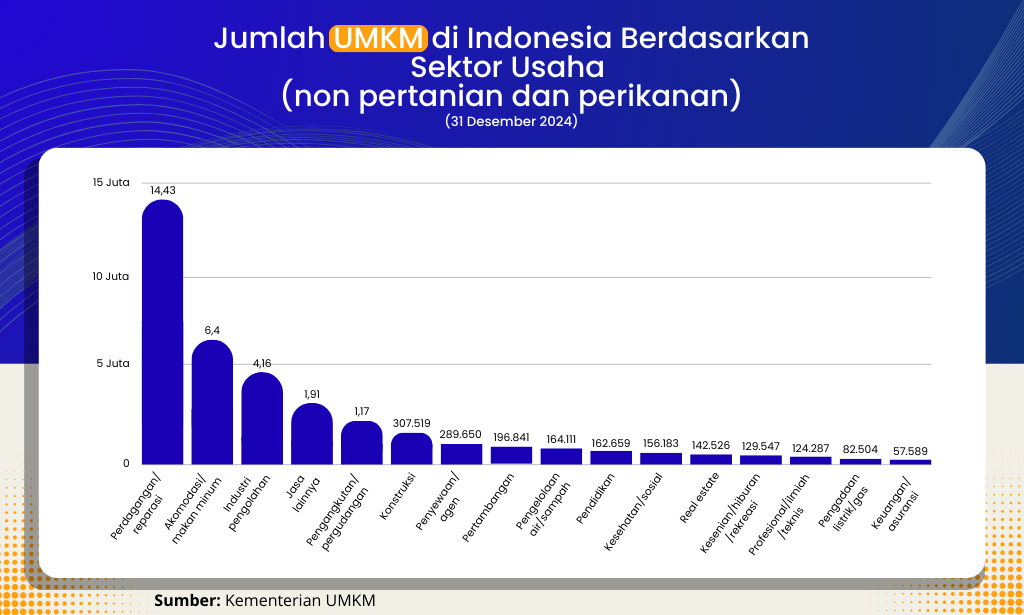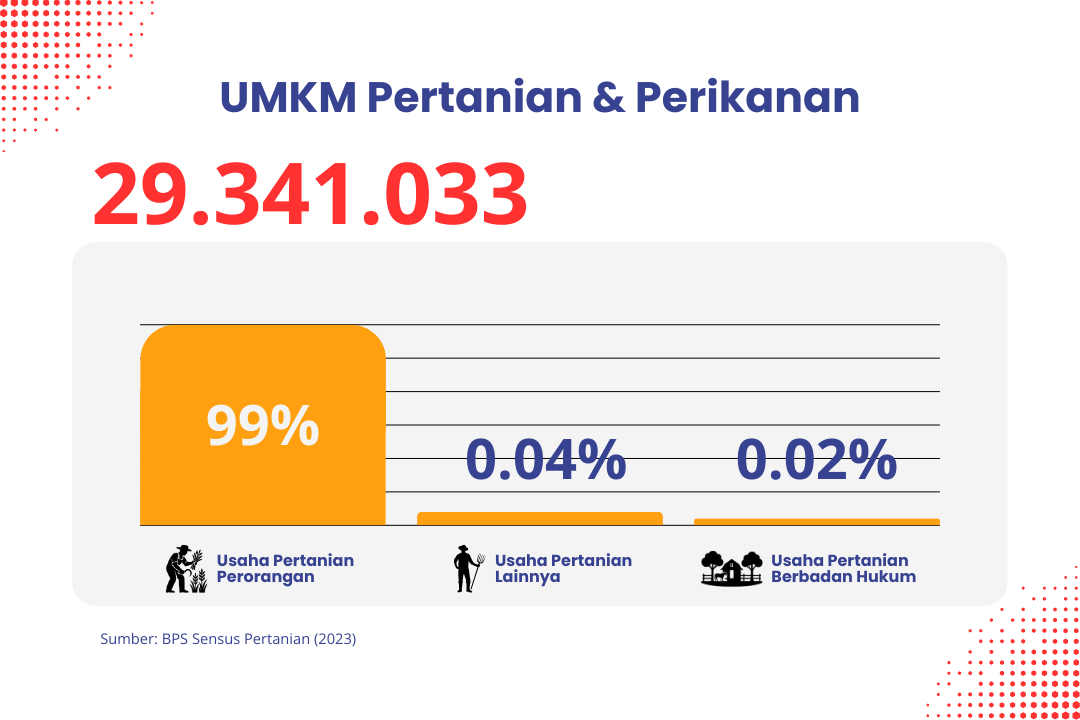Micro, Small and Medium Enterprises (MSMEs) play a significant role in Indonesia's economic growth. Accounting for 99% of all business units, MSMEs dominate Indonesia's economic structure.

According to data from the Ministry of Micro, Small and Medium Enterprises (MSME), there were approximately 30.18 million MSMEs registered in Indonesia as of 31 December 2024. However, this number does not include MSMEs in the agriculture and fisheries sectors.

Number of MSMEs per business sector registered at the Ministry of MSMEs as of 31 December 2024:

Meanwhile, based on data from the Central Statistics Agency (BPS) 2023 Agricultural Census, the number of agricultural and fishery MSMEs reached 29,341,033 units, 99% of which were individual agricultural businesses.

MSME categories are basically grouped based on the amount of business capital at the time of establishment. If the business capital reaches a maximum of one billion rupiah (excluding land and business premises), it is categorised as a Micro Business. Businesses with business capital of more than one billion rupiah up to five billion rupiah are classified as Small Businesses. Businesses with capital exceeding five billion rupiah up to ten billion rupiah are classified as Medium Business. Businesses with capital exceeding ten billion rupiah are classified as Large Business category.
MSME Challenges
The future challenges of MSMEs that must be addressed together by all relevant stakeholders include innovation and technology, digital literacy, productivity, legality or licensing, financing, branding and marketing, human resources, standardisation and certification, equitable distribution of guidance, training and facilitation, and a single database.
Currently, Kadin Indonesia and the Government of Indonesia are pushing to improve the performance of national MSMEs through a strategy of implementing digitalisation to increase competitiveness, become global players and export-oriented.
National Economy
Regional Economy
National Economy
Regional Economy